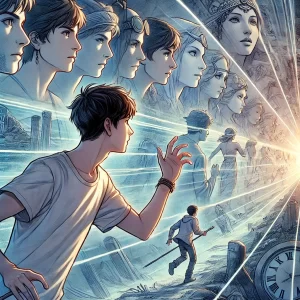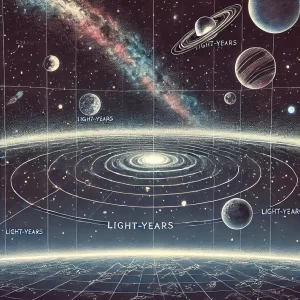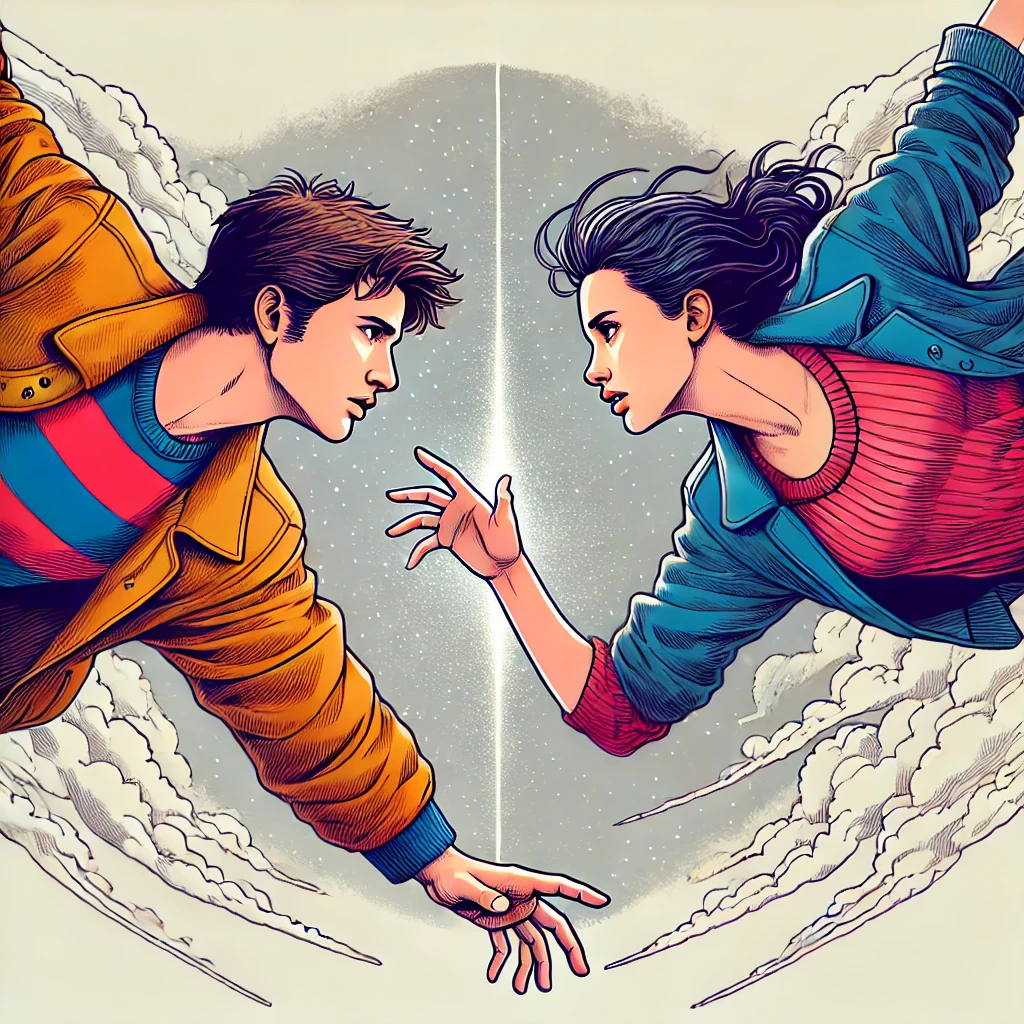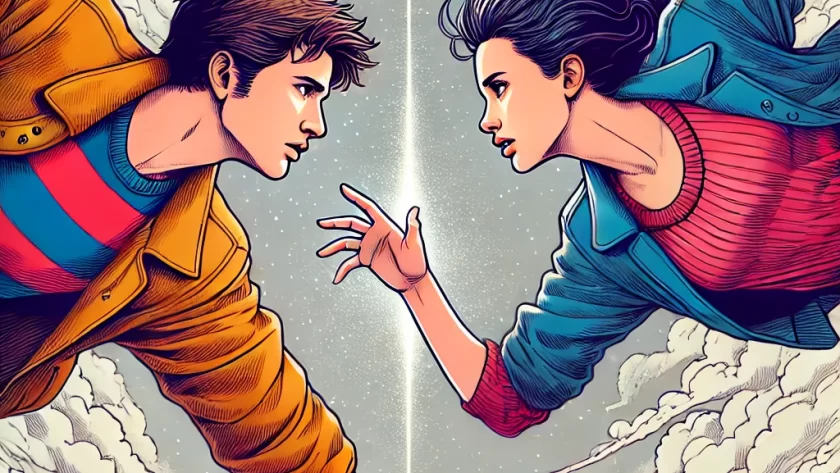前前前世 [Zenzenzense]
RADWIMPS [Raddowinpusu]
Words & Music : 野田洋次郎 [NODA Yōjirō]
Radwimps is a four-member rock band formed in Yokohama wiki. The band’s name is a coined term derived from English slang, meaning something like “cool weakling.”
“Zenzenzense” was created as an insert song for the anime film Your Name., directed by Makoto Shinkai, with music by Radwimps. “Your Name” was released worldwide and became a record-breaking hit, making “Zenzenzense” widely known. An English version was also produced, and while the lyrics are roughly translated, I encourage you to understand the meaning of the words.
- 前世(ぜんせ) [zense] : previous life
- 前(まえ) [mae] : before
The word “前世 / zense” (=previous life), a concept from Buddhist reincarnation, is quite commonly used even by those without religious awareness. The term “前 / mae” can be used to mean “before,” as in “前日 / zenjitsu” (=the day before). Likewise, “前々日(前前日) / zenzenjitsu” refers to the day before the day before. Although “前前世 / zenzense” or “前前前世 / zenzenzense” are not words found in dictionaries, their intended meaning is easy to understand.
While the concepts of reincarnation and previous lives were not introduced in Your Name., the atmosphere of the song “Zenzenzense” somehow matches the mood of the film.
やっと眼を覚ましたかい それなのになぜ眼も合わせやしないんだい?
yatto me o samashita kai sorenani naze me mo awase ya shinain dai
- やっと [yatto] : finally
- 目(め) [me] : eye
- 覚ます(さます) [samasu] : wake up
- なぜ [naze] : why
- 目を合わす(めをあわす) [me o awasu] : meet eyes
(translation) “Finally woke up? So why won’t you even meet my eyes?”
「遅いよ」と怒る君 これでもやれるだけ飛ばしてきたんだよ
osoi yo to okoru kimi koredemo yareru dake tobashite kitan dayo
心が身体を追い越してきたんだよ
kokoro ga karada o oikoshite kitan dayo
- 遅い(おそい) [osoi] : late
- 怒る(おこる) [okoru] : get angry
- 君(きみ) [kimi] : you
- やれるだけ [yareru dake] : as much as I can
- 飛ばす(とばす) [tobasu] : push forward
- 心(こころ) [kokoro] : heart
- 体(からだ) [karada] : body
- 追い越す(おいこす) [oikosu] : overtake
(translation) “You, angry, saying ‘You’re late.’ I’ve been pushing as much as I could.
My heart has overtaken my body.”
The use of “飛ばす / tobasu” (=push forward) here can refer to riding a bicycle or driving a car.
The particle “よ / yo” is frequently used in this song. Each usage has a slightly different nuance, but overall, it adds an emotional tone to the lyrics, though this is often not reflected in translations.
君の髪や瞳だけで胸が痛いよ
kimi no kami ya hitomi dake de mune ga itai yo
同じ時を吸いこんで離したくないよ
onaji toki o suikonde hanashitaku nai yo
遥か昔から知る その声に
haruka mukashi kara shiru sono koe ni
生まれてはじめて 何を言えばいい?
umarete hajimete nani o ieba ii
- 髪(かみ) [kami] : hair
- 瞳(ひとみ) [hitomi] : eyes
- 胸が痛い(むねがいたい) [mune ga itai] : my chest aches
- 同じ(おなじ) [onaji] : same
- 時(とき) [toki] : time
- 吸い込む(すいこむ) [suikomu] : breathe in
- 離す(はなす) [hanasu] : let go
- はるか [haruka] : distant
- 昔(むかし) [mukashi] : long ago
- 知る(しる) [shiru] : know
- その [sono] : that
- 声(こえ) [koe] : voice
- 生まれて初めて(うまれてはじめて) [umarete hajimete] : for the first time in my life
- 何(なに) [nani] : what
- 言う(いう) [iu] : say
(translation) “Just your hair and eyes make my chest ache.
I don’t want to let go of the time we share.
Hearing that voice I’ve known from long ago,
for the first time, I wonder what should I say?”
君の前前前世から僕は 君を探しはじめたよ
kimi no zenzenzense kara boku wa kimi o sagashi hajimeta yo
そのぶきっちょな笑い方をめがけて やってきたんだよ
sono bukiccho na waraikata o megakete yatte kitan dayo
- 探す(さがす) [sagasu] : search
- はじめる(はじめる) [hajimeru] : begin
- ぶきっちょ [bukiccho] : clumsy
- 笑い 方(わらいかた) [waraikata] : way of laughing
- めがける [megakeru] : aim for
- やる [yaru] : do
(translation) “Since your Zenzenzense, I’ve been searching for you.
I’ve come aiming for that clumsy smile of yours.”

君が全然全部なくなって チリヂリになったって
kimi ga zenzen zenbu nakunatte chirijiri ni natta tte
もう迷わない また1から探しはじめるさ
mō mayowanai mata ichi kara sagashi hajimeru sa
むしろ0から また宇宙をはじめてみようか
mushiro zero kara mata uchū o hajimete miyō ka
- 全然(ぜんぜん) [zenzen] : completely
- 全部(ぜんぶ) [zenbu] : everything
- 無くなる(なくなる) [nakunaru] : disappear
- 散り散り(ちりぢり) [chirijiri] : scattered
- なる [naru] : become
- もう [mō] : no longer
- 迷う(まよう) [mayou] : hesitate
- また [mata] : again
- 探す(さがす) [sagasu] : search
- むしろ [mushiro] : rather
- から [kara] : from
- 宇宙(うちゅう) [uchū] : universe
(translation) “Even if you completely disappear and become scattered,
I won’t hesitate. I’ll start searching again from square one.
Or maybe I’ll even start the universe over from zero.”
どっから話すかな 君が眠っていた間のストーリー
dokkara hanasu ka na kimi ga nemutte ita aida no sutorī
- どこ [doko] : where
- 話す(はなす) [hanasu] : talk
- 眠る(ねむる) [nemuru] : sleep
- 間(あいだ) [aida] : while
- ストーリー [sutorī] : story
(translation) “Where should I start? The story from when you were asleep.”
The expression “どっから / dokkara” is a casual pronunciation of “どこから / doko kara” (=from where). In the movie, “the story from when you were asleep” was communicated through their smartphones.
何億 何光年分の物語を語りにきたんだよ けどいざその姿この眼に映すと
nanioku nankōnenbun no monogatari o katari ni kita nda yo kedo iza sono sugata kono me ni utsusu to
- 億(おく) [oku] : hundred million
- 光年(こうねん) [kōnen] : light-year
- 物語(ものがたり) [monogatari] : story
- 語る(かたる) [kataru] : tell
- 来る(くる) [kuru] : come
- いざ [iza] : when the time comes
- 姿(すがた) [sugata] : figure
- 映す(うつす) [utsusu] : reflect
(translation) “I’ve come to tell a story spanning hundreds of millions of light-years, but when I finally see you before my eyes…”
The term “光年 / kōnen” (=light-year) is a direct translation from English and is a scientific term. It’s often misunderstood as a unit of time, but it actually refers to distance, so this is likely a misuse. It seems that Japanese lyrics have often misused “light-year” for quite some time. Perhaps the blame lies with the person who coined the term. There’s also a theory that Japanese people tend to blur the concepts of distance and time, treating them as one.

君も知らぬ君とジャレて 戯れたいよ
kimi mo shiranu kimi to jarete tawamuretai yo
君の消えぬ痛みまで愛してみたいよ
kimi no kienu itami made aishite mitai yo
銀河何個分かの 果てに出逢えた
ginga nanko bun ka no hate ni deaeta
その手を壊さずに どう握ったならいい?
sono te o kowasazu ni dō nigitta nara ii
- じゃれる [jarelu] : play around
- 戯れる(たわむれる) [tawamureru] : frolic
- 消える(きえる) [ kieru] : disappear
- 痛み(いたみ) [itami] : pain
- 愛する(あいする) [aisuru] : love
- 銀河(ぎんが) [ginga] : galaxy
- 果て(はて) [hate] : end
- 出会う(であう) [deau] : meet
- 手(て) [te] : hand
- 壊す(こわす) [kowasu] : break
- どう [dō] : how
- 握る(にぎる) [nigiru] : grip
(translation) “I want to play around with the you that even you don’t know.
I want to love you, even your pain that won’t disappear.
At the end of galaxies, we finally met.
How should I hold your hand without breaking it?”
君の前前前世から僕は 君を探しはじめたよ
kimi no zenzenzense kara boku wa kimi o sagashi hajimeta yo
その騒がしい声と涙をめがけ やってきたんだよ
sono sawagashī koe to namida o megake yatte kitan dayo
そんな革命前夜の僕らを誰が止めるというんだろう
sonna kakumei zenya no bokura o dare ga tomeru to iu n darō
もう迷わない 君のハートに旗を立てるよ
mō mayowanai kimi no hāto ni hata o tateru yo
君は僕から諦め方を 奪い取ったの
kimi wa boku kara akiramekata o ubaitotta no
- 騒がしい(さわがしい) [sawagashī] : noisy
- 涙(なみだ) [namida] : tears
- 革命(かくめい) [kakumei] : revolution
- 前夜(ぜんや) [zenya] : night before
- 僕ら(ぼくら) [bokura] : us
- 誰(だれ) [dare] : who
- 止める(とめる) [tomeru] : stop
- 迷う(まよう) [mayou] : hesitate
- ハート [hāto] : heart
- 旗(はた) [hata] : flag
- 諦める(あきらめる) [akirameru] : give up
- 奪う(うばう) [ubau] : take away
(translation) “Since your Zenzenzense, I’ve been searching for you.
I’ve come aiming for your noisy voice and tears.
Who would dare stop us on this eve of revolution?
I won’t hesitate anymore. I’ll plant a flag in your heart.
You’ve taken away my ability to give up.”

前前前世から僕は 君を探しはじめたよ
zenzenzense kara boku wa kimi o sagashi hajimeta yo
そのぶきっちょな笑い方をめがけて やってきたんだよ
sono bukiccho na waraikata o megakete yatte kitan dayo
君が全然全部なくなって チリヂリになったって
kimi ga zenzen zenbu nakunatte chirijiri ni natta tte
もう迷わない また1から探しはじめるさ
mō mayowanai mata ichi kara sagashi hajimeru sa
何光年でも この歌を口ずさみながら
nankōnen demo kono uta o kuchizusami nagara
- 歌(うた) [uta] : song
- 口ずさむ(くちずさむ) [kuchizusamu] : hum
(translation) “Since your Zenzenzense, I’ve been searching for you.
I’ve come aiming for that clumsy smile of yours.
Even if you completely disappear and become scattered,
I won’t hesitate. I’ll start searching again from square one.
Even if it takes light-years, I’ll be humming this song.”
As a love song, I think it’s pretty cool. Since it’s made with the movie in mind, I think it’s okay to just imagine and enjoy the atmosphere.
Thanks for reading! Feel free to comment if you have any feedback or questions.
Follow me on X.



